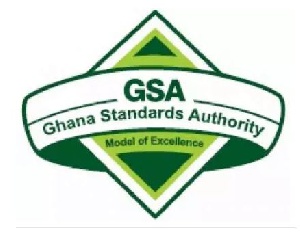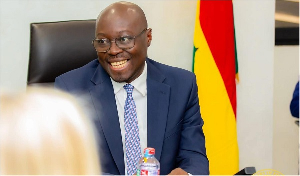Ghana Standards Authority has obtained a new accreditation certificate from the German accreditation body DAkkS, giving it a seal of approval and endorsement of the class of measurements that it provided to clients.
In all, six metrology laboratories at the Ghana Standards Authority (GSA) have now received the certification, underscoring their specialisation in the measurement of mass, temperature, humidity, pressure as well as volume.
DAkkS officially handed over the accreditation certificates to the management of GSA at a ceremony in Accra on Wednesday.
Commenting on the achievement, the Director General of the GSA, Professor Alexander Nii Dodoo lauded DAkkS for the initiative, saying metrology was key to government’s industrialisation agenda.
He said the country’s ability to measure, count or weigh in relation to international standards was important to the country’s trading relations with the international community.
The Minister of Trade and Industry, Alan Kojo Kyeremanten, called for the set up of a solid quality infrastructure to boost international trade.
“If we do not pay attention to our quality infrastructure, we cannot even compete on our own continent. It is not always about exports. It is also about imports. I am sure many of us as consumers are aware of the dumping of poor quality goods in our country. If we have a good, solid quality infrastructure, all these goods that are coming in would actually have no space in our domestic market,” he said.
Mr Kyerematen asked prospective investors and businesses operating in the country to continue to invest in high standards in order to enhance their capacities to compete in the global market.
On his part the German Ambassador to Ghana, Mr Christoph Retzlaff, said standards protected consumers and their health as well as the environment for which reason correct measurements were a basis for trade.
He said while Ghana had free access to the European market through the Interim European Partnership Agreement, which offered a great opportunity for agricultural products, compliance with quality standards and technical provisions were key to obtaining the benefits.
He said some of the goals associated with Ghana Beyond Aid were highly dependent on a solid quality infrastructure.
“Domestic revenue mobilization, stimulation of private investment and reduction of unemployment, all required standardized testing, evaluation and accreditation. For example, it is relevant for taxing systems as well as for import and export.”
He said Germany, via PTB, supported two projects in Ghana, which fitted perfectly into the new initiatives of the Ghanaian government, namely One District, One Factory and also Planting for Food and Jobs, with the development of soil and seed laboratories, pesticide and fertilizer analyses, moisture and humidity control, pre-packaging control, as well as verification of mass and balances.
Ms Annabel Brewska, representative for Dakks responsible for international affairs, commended Ghana for its continued quest to promote quality standards.
Carola Heider, project manager for PTB, the German National Institute of Metrology, in a remark said the new accreditation would enhance products exported from Ghana to be internationally recognised, especially since these would be tested by the GSA.
“Such recognition will help Ghana’s economy to become more reliable and competitive,” she added.
Business News of Friday, 1 June 2018
Source: ghananewsagency.org
GSA gets Certification from German accreditation body
Entertainment












